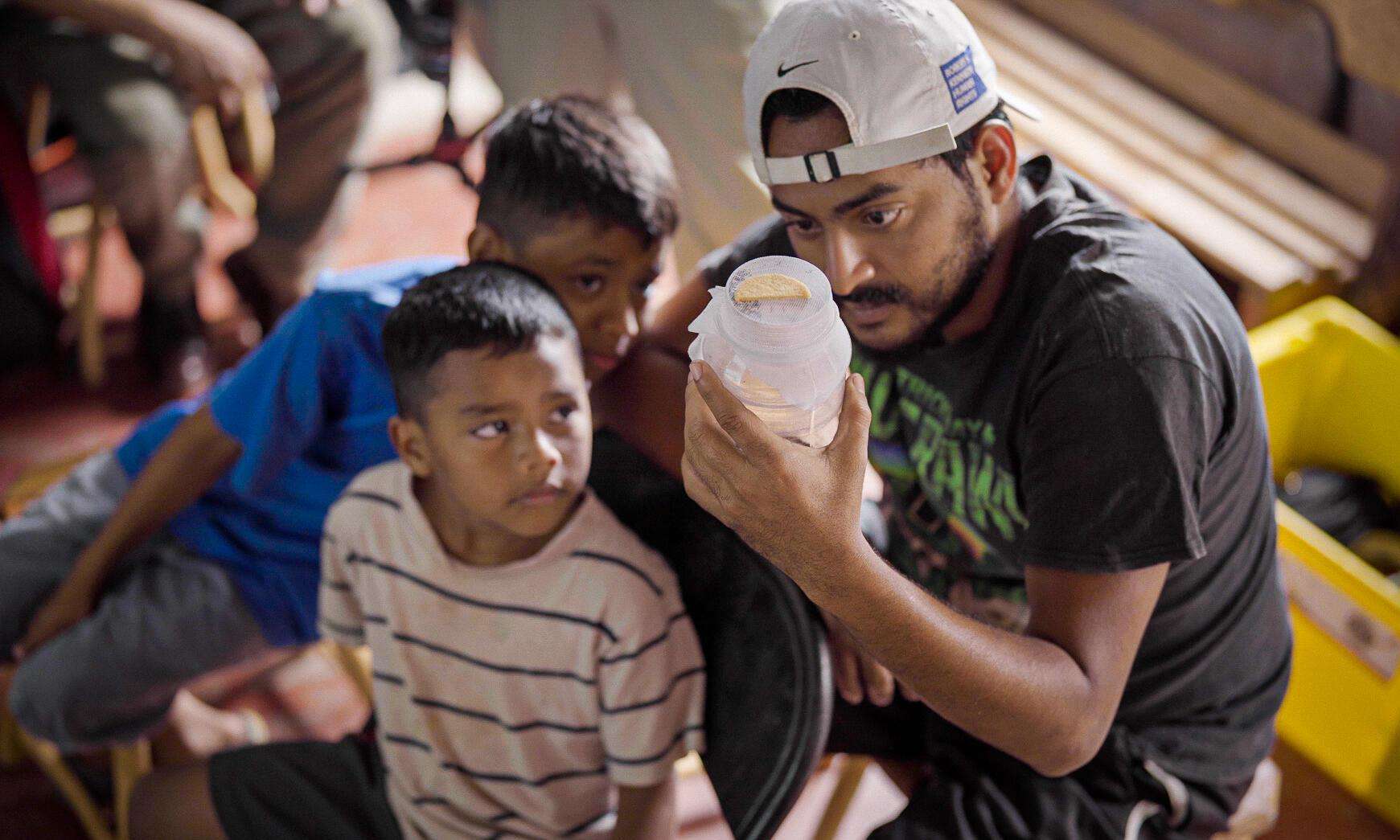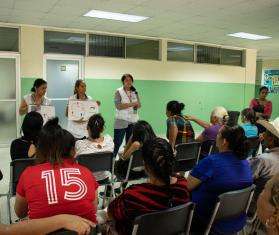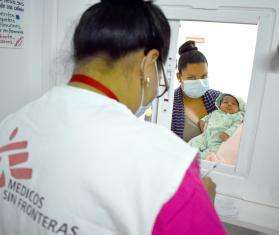For Victoria, a mosquito bite became the beginning of a nearly fatal nightmare. “At first it was the fever, then the joint pain that wouldn't let me move. When the bleeding started, I thought I was going to die,” she said. “All I wanted was to survive to be able to take care of my daughter.”
Victoria lives in one of the most populated neighborhoods of Tegucigalpa, the capital of Honduras. There, steep dirt roads are surrounded by houses made of concrete, wood, and sheet metal. Despite the presence of nearby forests and ravines, water remains a scarce commodity for the local community. The water that is available is stagnant, forming a breeding ground for mosquitoes that transmit dengue and other arboviruses such as Zika and chikungunya.
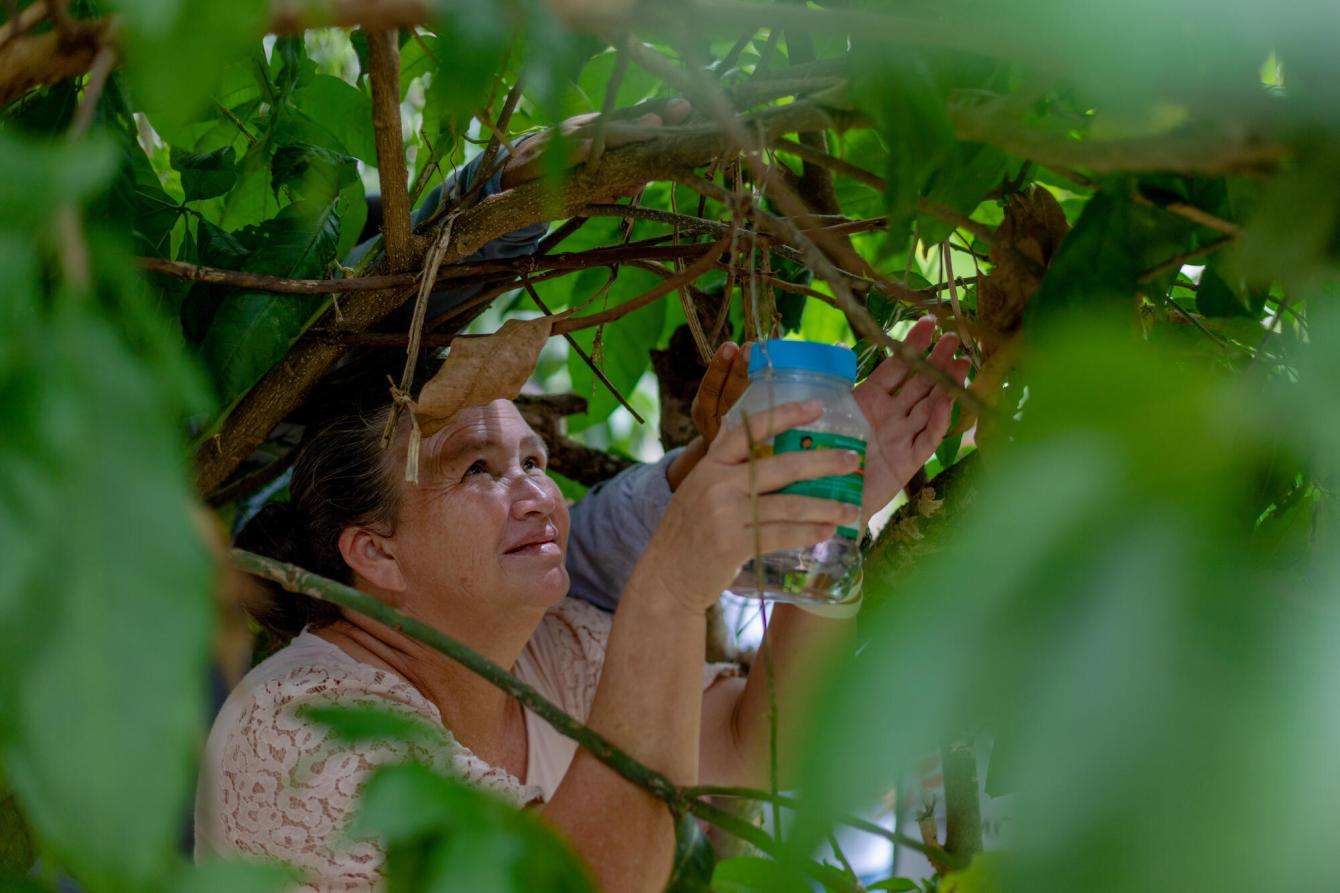
Historic rates of dengue in Tegucigalpa
In 2023, the Honduran Ministry of Health reported more than 9,200 cases of dengue in Tegucigalpa. In this area, dengue rates have historically been higher than in other parts of the country, and communities there are well aware of the deadly consequences. As cases increase, Tegucigalpa remains on high alert, requiring weekly interventions from the Ministry of Health to control the spread of disease.
Another Tegucigalpa resident, Sandra, says her family has suffered several cases of dengue, some very severe. "My grandson was hospitalized and so sick that we expected the worst, but thankfully he recovered," she said.
These painful experiences have prompted Victoria and Sandra to join a group of community leaders who have come together to fight dengue in their neighborhood. Today, both are working shoulder to shoulder with Doctors Without Borders/Médecins Sans Frontières (MSF) to implement a project to prevent this disease through an innovative method in which technology and community participation are essential.
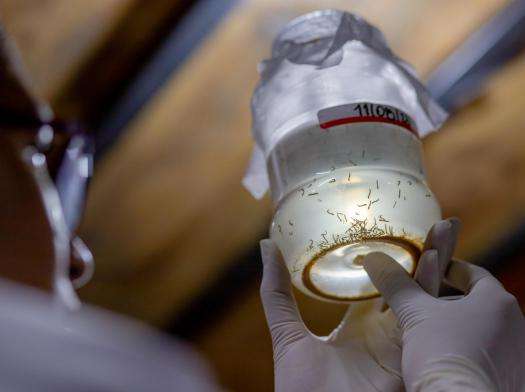
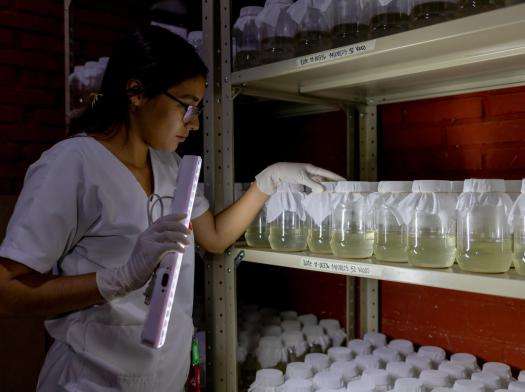
Mosquitoes have four stages in their life cycle: egg, larvae, pupa, and adult. Once the hundreds of larvae in this lab become adults, they will be released in the wild carrying the natural Wolbachia bacteria, which reduces mosquitoes’ ability to transmit arboviruses. Honduras 2023 © Martín Cálix/MSF
How the Wolbachia method works
"For many years, MSF has conducted emergency interventions to deal with dengue outbreaks in this area of the city," explained Edgar Boquin, project coordinator. "We have managed to reduce case numbers, but research on resistance to fumigation shows that traditional methods are no longer effective to stop the spread. That’s why it is necessary to introduce complementary and innovative measures."
This new approach is based on the use of mosquitoes carrying a type of bacteria called Wolbachia, which prevents the transmission of dengue and other diseases such as Zika and chikungunya. This bacteria lives naturally on 50 percent of insects, including some mosquitoes, fruit flies, moths, dragonflies, and butterflies. However, it is not naturally present in the main transmitters of arboviruses, such as the Aedes aegypti mosquito.
Through a technology developed by the World Mosquito Program (WMP), Wolbachia is introduced into mosquito eggs in a laboratory. Later, when the mosquitoes mature, they are released in the intervention areas in order to reduce the transmission of arboviruses and mate with local mosquitoes to ensure new generations will also do so. This method has been used in countries including Australia, Brazil, Mexico, and Colombia, where more than 11 million people continue to benefit from this method of prevention against mosquito-borne diseases.
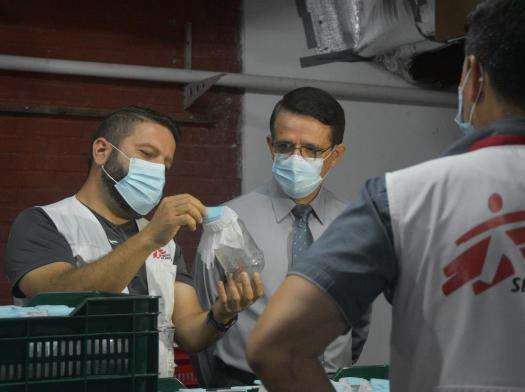
The Minister of Health, José Matheu, visited the MSF insectary to learn first-hand about the process of breeding the Wolbachia mosquitoes that will be released for the next six months. Honduras 2023 © Laura Aceituno/MSF
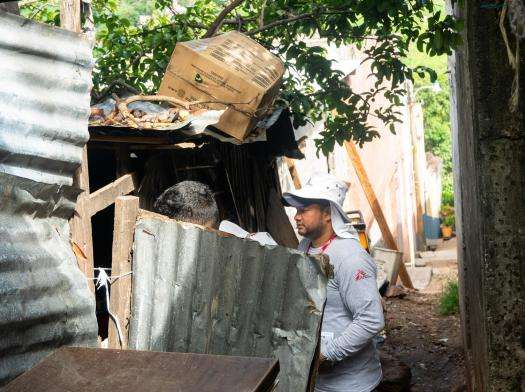
Every day, health promoters walk the streets of El Manchén to explain to local residents what the Wolbachia technique consists of and how it is used to reduce dengue cases. Honduras 2023 © Maria Chavarria/MSF
After a first phase focused on raising awareness and acceptance of Wolbachia by communities in the area, we will soon introduce mosquitoes that carry the bacteria to begin the mating process with the local mosquito population. "As a result, it is expected that after releasing carrier mosquitoes for a maximum of 26 weeks (about six months), the bacteria will have been transmitted from generation to generation until a high percentage of mosquitoes in the intervention area carry the bacteria," explained Boquin.
To monitor the progress of this initiative, the Microbiology Research Institute of the Autonomous University of Honduras (IIM-UNAH) is also participating in the project. “We will be monitoring the sample collection process, analysis, and the publication of the results in a timely manner,” said Denis Escobar, researcher at IIM-UNAH. “Our interest is to generate scientific evidence that helps to demonstrate, the effectiveness of these studies to both the Ministry of Health and the communities.”

Building community awareness for arbovirus prevention
“At first I had a lot of questions about the MSF project,” said Sandra. “Here, we know the organization well because last year we were working on fumigation to eliminate mosquitoes during the dengue emergency. So when they told us that we are not going to eliminate the mosquitoes anymore, but rather release more, it was quite a big change! The first thing we felt was fear because we have been coming out of a COVID pandemic and we do not want to get into another one.”
After multiple community workshops and informational meetings with MSF's health promotion teams, Sandra has gone from feeling hesitant to confident enough to promote the initiative to others.
“The Wolbachia method is still difficult to explain to our neighbors, but we understand the potential this technology offers us to reduce the damage of dengue in our community, and specifically for minors, who are the most exposed and most at risk."
The involvement of people from the community like Sandra and Victoria is essential for the success of the project. Firstly, they are in charge of hosting containers of Wolbachia eggs in their homes that arrive from MSF's insectarium. Sandra and Victoria then monitor their growth and subsequent release.
"We have also planned promotional activities and a local advocacy system in which community leaders will become the main spokespeople for the project to encourage others to participate,” said Juan Bernales, MSF's head of community activities.
In July this year, MSF teams conducted a survey of more than 490 people from the community to determine the level of acceptance of the project. The results indicate that 97 percent of respondents agree that this initiative should be implemented to reduce the impact of dengue in the area.
“Many people have accepted that dengue fever is something they must live with,” said Sandra. “But with this project, we want to show there's another way to lower the level of dengue in our neighborhood.”
According to the World Health Organization, dengue fever is one of the top ten global health threats. It's also one of the most rapidly spreading as incidence has increased 30-fold over the past 50 years. Today, more than half the world’s population is at risk, and it is expected that another billion people will be exposed to dengue fever in the coming decades due to climate change.
